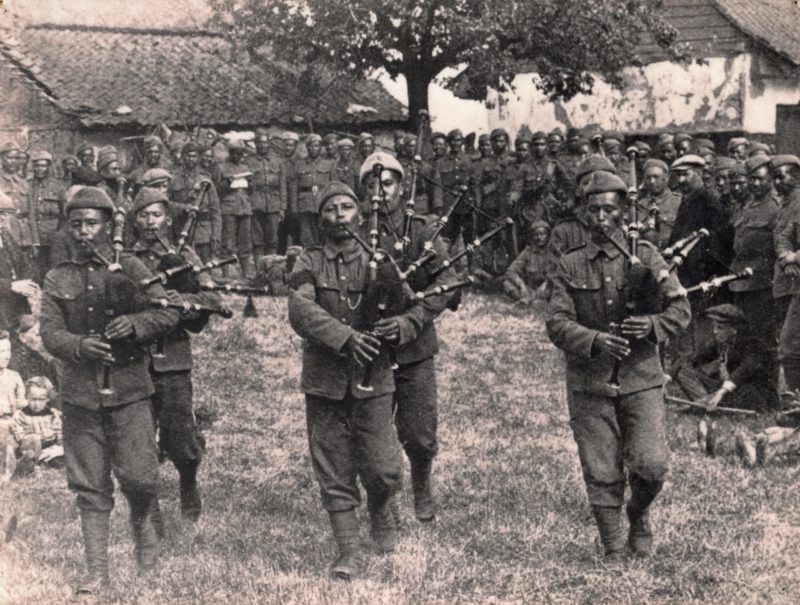Gurkhas and the First World War

Gurkhas and the First World War
Deployment
Prior to the outbreak of the First World War the existing 10 Gurkha Regiments of the Gurkha Brigade had only served in Europe once, very briefly on Malta and Cyprus in 1878. However, in 1914 it became apparent that the British Expeditionary Force was in need of rapid reinforcement to prevent it being outmanoeuvred. The Indian Army thus sent The Indian Expeditionary force to France in September and October 1914, containing a number of Gurkha battalions.
The Indian and Gurkha troops that were sent faced one of the worst European winters on record, with extremes of cold, rain, mud and disease, as well as the dangers of modern mechanised trench warfare and cultural and language difficulties. In spite of these difficulties the Indian and Gurkha troops rose to the occasion and managed to stabilise the British western front long enough for conscription of British soldiers to allow replacement of Indian and Gurkha infantry units in 1915.
Gurkha units then moved on to serve in other theatres of war, most famously fighting during the Gallipoli campaign, where the First Battalion of the 6th Gurkha Rifles became the only Allied unit to successfully (albeit briefly) attain their high-ground objectives at the feature known as Sari Bair in August 1915. Gurkha troops fought further east, in Egypt, the Middle East and in Mesopotamia, continuing the fight against the Ottoman Empire until the end of the war in 1918, and remaining in the region for months or even years afterwards to help keep the peace between different factions and tribal groups.
Gurkha Victoria Crosses during the First World War
Three Victoria Crosses were awarded to members of Gurkha Regiments during the First World War. This included the first ever Victoria cross to be awarded to a Gurkha soldier (prior to 1911, only British soldiers and officers had been eligible to receive the VC). Rifleman Kulbir Thapa of the 3rd Queen Alexandra’s Own Gurkha Rifles was awarded the Victoria Cross for actions in September 1915, when he managed to rescue three wounded Gurkha and British soldiers, despite being wounded himself and being in view of the opposing German trenches.
By the end of the First World War over 90,000 Gurkha soldiers had served, with over 20,000 casualties and 6,000 deaths.

